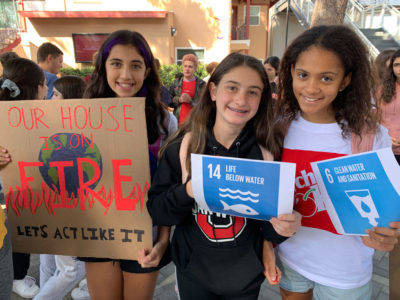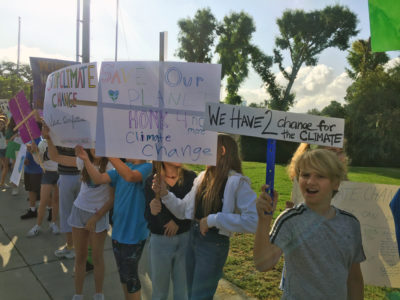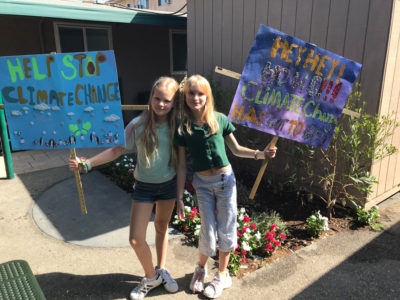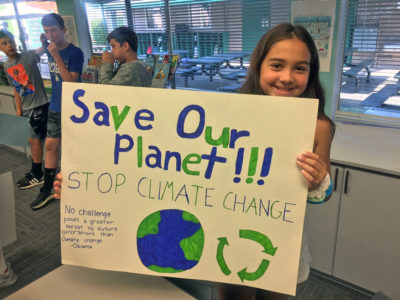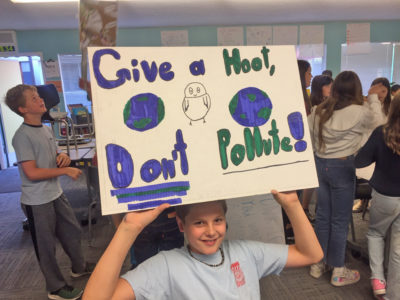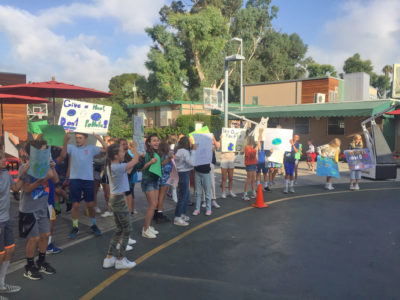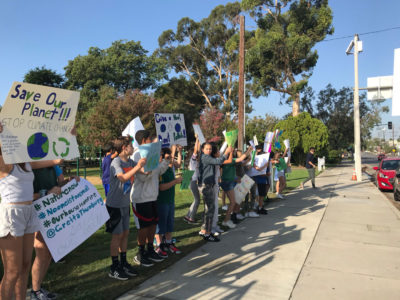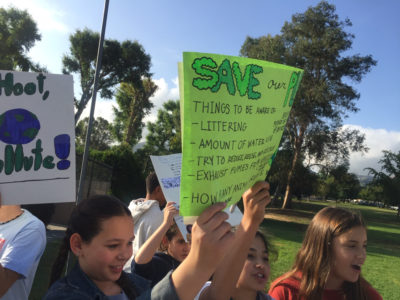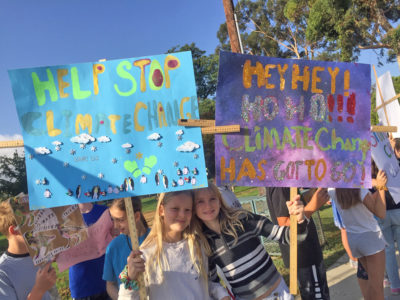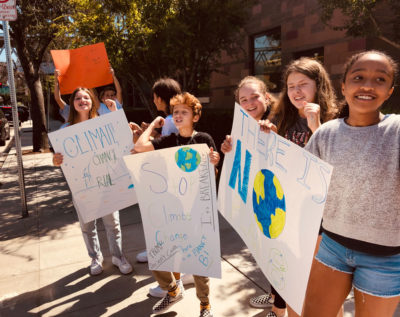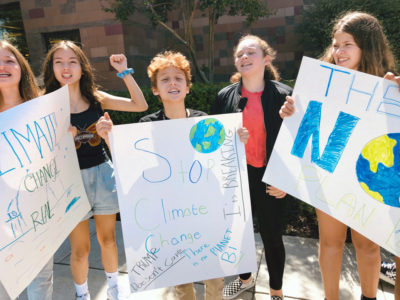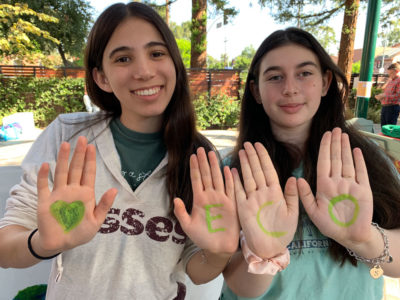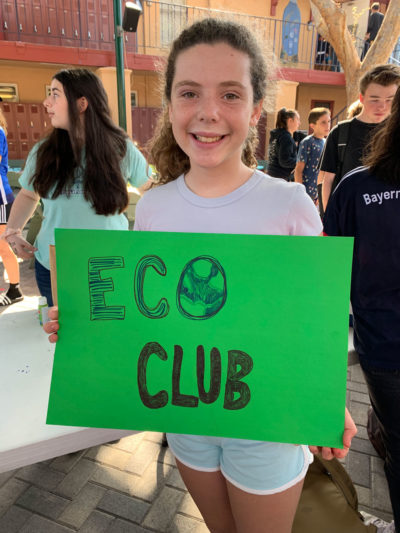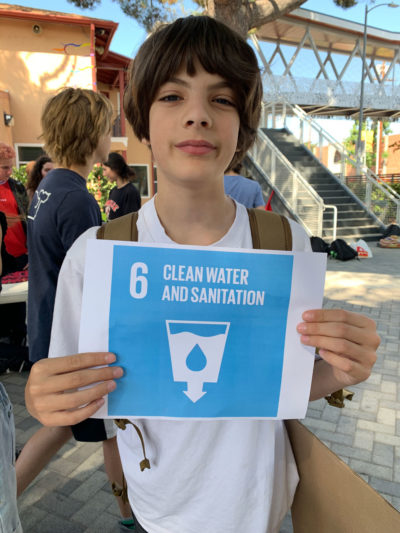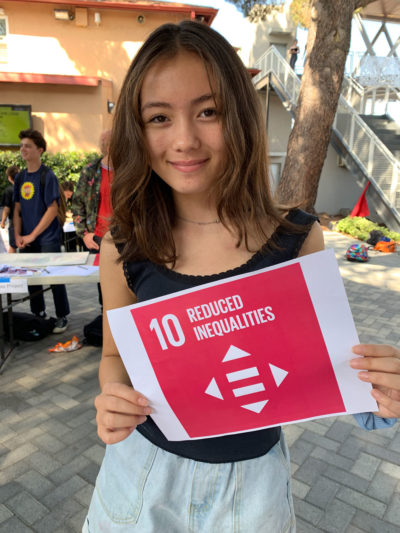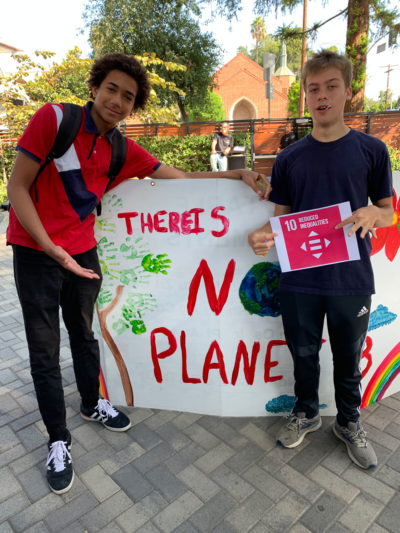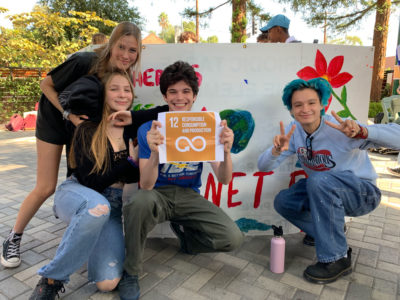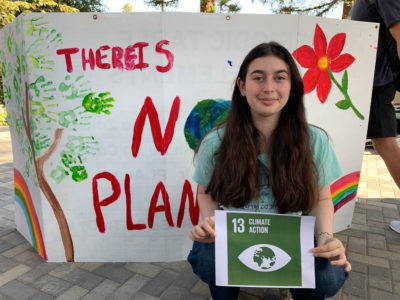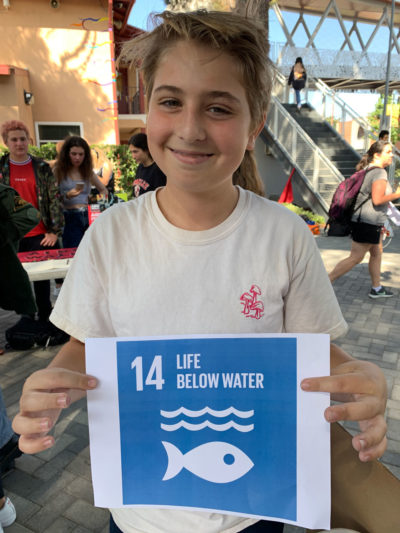Addressing Climate Change at Oakwood
by Phu Tranchi, Director of Experiential Learning
Climate change has taken on a greater sense of urgency in our community as reports of environmental disasters and pollution seem to be in the news daily. We have a variety of ongoing and new initiatives in the community aiming at doing our part to mitigate our negative impact. The elementary playspace and community room are constructed up to LEED standards, though we have not bought into their certification program. Recent campus upgrades have focused on sustainability, including LED lighting, bottle-filling stations, and low-water plumbing fixtures.
As a part of the 4th grade curriculum, students present on sustainability practices with a focus on the features of our green buildings, as well as maintaining the school garden. Both Oakwood campuses competed in the national ReNew Our Schools challenge where schools competed to reduce energy consumption. The elementary campus did well and the secondary campus won in their category. Secondary students from the ECO Club led the charge, raising awareness, running an ECO fest, and conducting an energy audit that has helped inform some energy upgrades on their campus. The eGauge devices installed to monitor our energy-use remain in place and continue to provide data about our energy consumption. The club has elected to use the prize money to invest in a food composter to help address food waste, and its operation will be integrated into the middle school science curriculum.
The secondary Science department is doing its part to address climate change at every opportunity across the curriculum and the Social Studies department has shifted their focus in world history to thematically examine how past human civilizations have succeeded or failed to live sustainably in the natural world. Their goal is “to cultivate an environmental consciousness in students and to make them see the social dimension of our current environmental crisis, and to think about what needs to change in culture, politics, and economics to meet this challenge.”
Another school-wide focus for community engagement is working for the UN Sustainable Development Goals (SDGs), in which Climate Action is Goal #13 and a key theme in our middle school work. We are teaching students to take ownership of the SDGs and become advocates for the goals through volunteerism and activism.
Our Experiential Learning programs are always mindful of environmental impact, as we’ve worked with our educational partners to reduce the waste we generate during school retreats and programs, and consider more plant-based dietary options. Furthermore, our Parent Organization continues to explore ways to be more conscious in their practices, sponsoring a helping to remove single-use plastics from our foodservice programs and incorporating eco-friendly and biodegradable options for their promotional materials.


